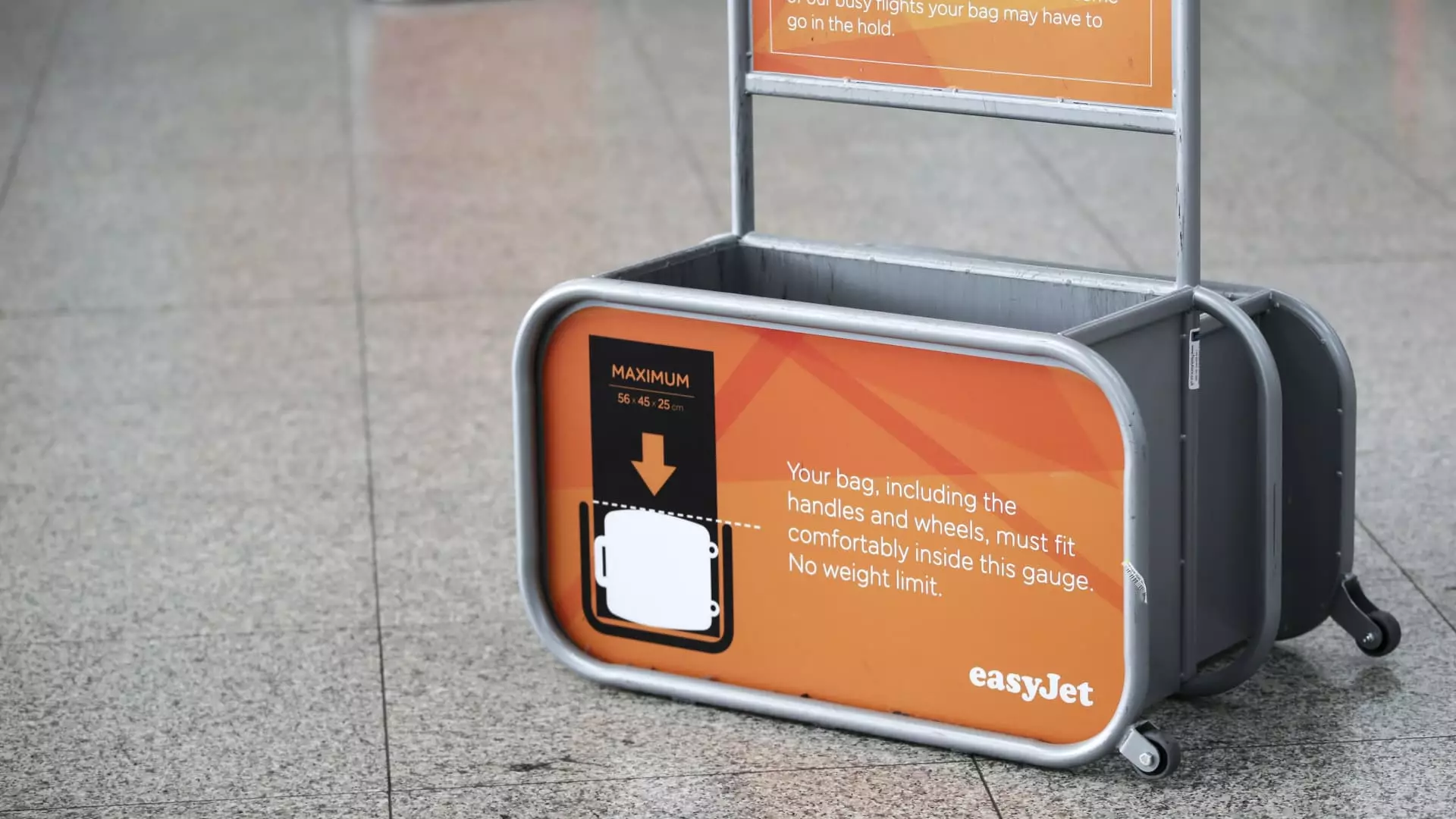EasyJet has made headlines recently by announcing a remarkable £3.59 billion ($4.5 billion) earnings from ancillary revenues during the fiscal year ending in October. This figure underscores the airline’s lucrative strategy in charging for additional services that enhance the passengers’ travel experience. However, the good news was marred by a hefty fine imposed by the Spanish authorities, highlighting the delicate balance between maximizing profits and adhering to consumer protection regulations.
Ancillary revenue refers to the additional income generated from services outside of the standard ticket price. For EasyJet, this encompasses a variety of offerings, from additional luggage fees to seat selection, priority boarding, and even in-flight meals. The airline has observed a remarkable year-on-year growth of 22% in ancillary revenues, indicating a robust consumer appetite for customizable travel options. Notably, the airline segment alone witnessed a 13% surge in ancillary revenue, reaching an impressive £2.46 billion—a record high. This model reflects a growing trend in the airline industry where a base fare is kept low, enticing customers, while additional charges are strategically applied to enhance profitability.
Despite the apparent success, EasyJet’s profit report coincided with news of a fine from Spain’s Ministry of Consumer Rights, which penalized the airline along with others for “abusive practices.” According to the ministry, this included excessive charges for necessary services like hand luggage and seat reservations, particularly for families traveling with dependent children. EasyJet’s CEO, Johan Lundgren, countered this assertion vehemently, arguing that the fine contradicts European law and claiming that a significant segment of their customer base — one-third, in fact — opts not to purchase any additional services. Thus, he argues that customers should not be held accountable for costs tied to options they do not utilize.
The backlash against the Spanish fines extended beyond EasyJet, with other low-cost carriers such as Ryanair and Norwegian also expressing their intent to dispute the penalties. The airlines contended that not only were these fines disproportionate, but they also highlighted a troubling trend of overreach by regulatory bodies into fair market practices. The concern lies in the balance between consumer rights and the operational freedoms of airlines, particularly in the competitive landscape of budget travel.
Despite regulatory challenges, EasyJet has reported a strong overall performance, with a 34% year-on-year increase in profit before tax, totaling £610 million. The airline’s assumption of market leadership can be attributed to robust demand for travel in Europe, especially following the pandemic’s aftermath. However, competitors like Ryanair have reported contrasting outcomes, citing an 18% decline in half-year profits. Ryanair’s struggles stem from decreased fares, increased pressure on consumer spending, and delays in aircraft deliveries from Boeing, which have all affected their growth trajectory.
As travel demand rebounds post-pandemic, the strategic approaches taken by airlines are vital to their recovery and profitability. EasyJet’s focus on ancillary revenues reflects a broader trend in which airlines are adjusting their business models to survive and thrive amidst new market realities. Travelers now seek personalized experiences, allowing budget airlines to capitalize on these changing preferences.
Navigating the paradox of generating revenue through ancillary charges while ensuring compliance with evolving consumer rights regulations will be crucial for EasyJet and its counterparts. As travelers increasingly prioritize unique experiences and tailored services, the airline industry must adapt accordingly, crafting a path that balances profitability with the importance of consumer trust and regulatory adherence. Continued scrutiny from consumer rights agencies may force airlines to revisit their pricing strategies, reinforcing the need for transparency in fees as the industry matures in the post-pandemic environment.

